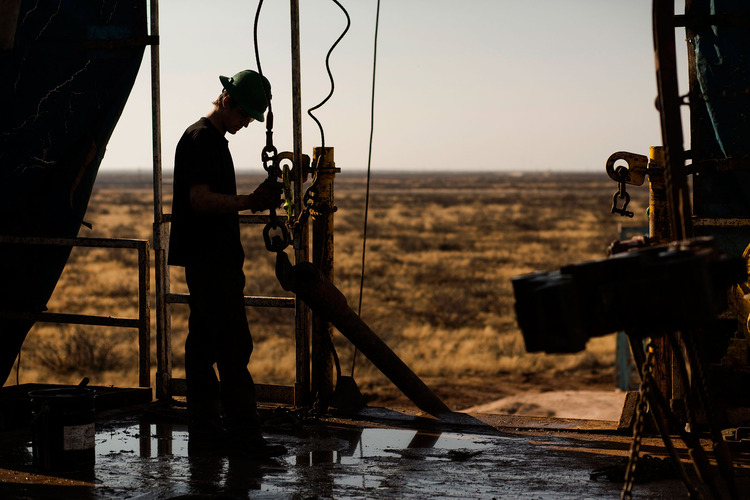- US Import of Nigerian Oil hits 42-month High
The increase in the United States’ imports of Nigerian crude oil has continued, with a record import of 9.78 million barrels in January, the latest report from the US Energy Information Administration has revealed.
Nigeria saw significant reduction in the US imports of its crude in recent years, starting from 2012, following the shale oil production boom.
The US import of Nigerian crude fell to 6.17 million in June 2013 from 10.115 million barrels in May and about 40 million barrels in March 2007.
In 2014, when global oil prices started to fall from a peak of $115 per barrel, Nigeria saw a further drop in the US imports of its crude from 87.4 million barrels in 2013 to a record low of 21.2 million barrels.
For the first time in decades, the US did not purchase any barrel of Nigerian crude in July and August 2014 and June 2015, according to the EIA data.
The US almost tripled the volume of crude oil bought from Nigeria last year, with the biggest monthly import of 8.43 million barrels in July. It imported 76.9 million barrels of Nigerian oil in 2016, up from 19.9 million barrels in 2015.
Nigeria’s crude oil and condensate production averaged 1.676 million barrels per day in March, a fall of over 200,000 bpd from the previous month, according to the Ministry of Petroleum Resources.
The ministry said the country’s oil output was 1,676,045 bpd in March, down from around 1.9 million bpd in February, but it did not provide reasons for the sharp month-on-month fall.
However, Platts quoted sources close to the matter as saying the output was down mainly due to maintenance at the Bonga field, which averaged around 150,000-200,000 bpd.
Shell said in early March that Bonga production would be shut in for about four weeks to five weeks due to turnaround maintenance and engineering upgrades at the Bonga floating, production, storage and offloading vessel.
The nation’s oil production still remains sharply below its capacity of 2.2 million bpd, with the main export grade Forcados still shut in. It plummeted to near 30-year lows of around 1.2 million bpd in May 2016 as attacks on oil facilities in the Niger Delta rose at an alarming pace due to resurgent militancy.
But the output has recovered gradually this year as militant attacks have fallen substantially since early January after the government stepped up peace talks with leaders and youths in the Niger Delta to end militancy in the region.
The Head of Energy Research, Mr. Dolapo Oni, said the decision by the government to explore negotiating opportunities with militants in the Niger Delta region against the military campaign of the past seemed to be yielding positive result.
He said, “The renewed government negotiation initiative being led by Vice-President Yemi Osinbajo has seen him frequently visiting the region in the recent past. Militant attack on facilities has also declined significantly and repair work is being carried out at accelerated pace and fear of militant attacks is subdued.
“While it is yet to be ascertained if negotiations could result in a long-time deal, we believe the measure is more reliable than the military option. Recovery in production is critical for Nigeria as the country continues to battle with economic recession and foreign exchange scarcity.”
Oni said if the disruptions in the Niger Delta region were allowed to continue, the country would likely fall short of this oil output projection of 2.2 million for 2017.
“It is, therefore, necessary for the current effort by the government to yield positive result and we believe recent developments indicate some success so far,” he added.

 Naira4 weeks ago
Naira4 weeks ago
 Naira4 weeks ago
Naira4 weeks ago


 Naira4 weeks ago
Naira4 weeks ago




 Naira3 weeks ago
Naira3 weeks ago
 Commodities4 weeks ago
Commodities4 weeks ago


 News3 weeks ago
News3 weeks ago


 Banking Sector4 weeks ago
Banking Sector4 weeks ago
 Travel4 weeks ago
Travel4 weeks ago
























